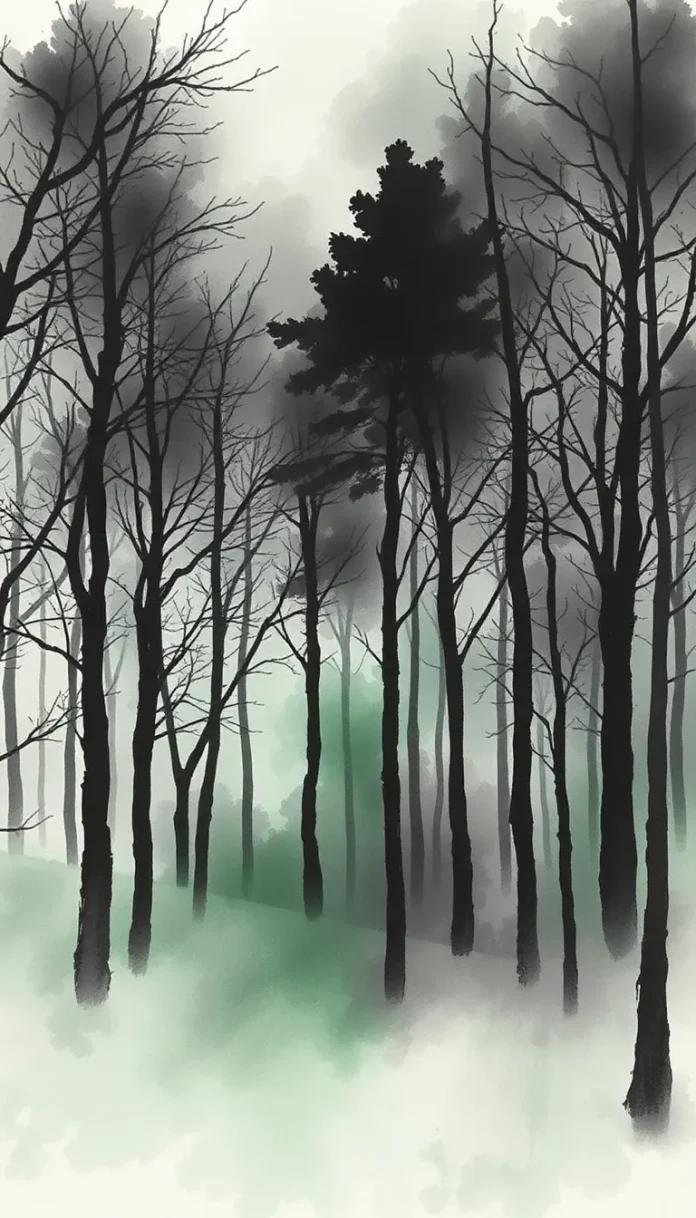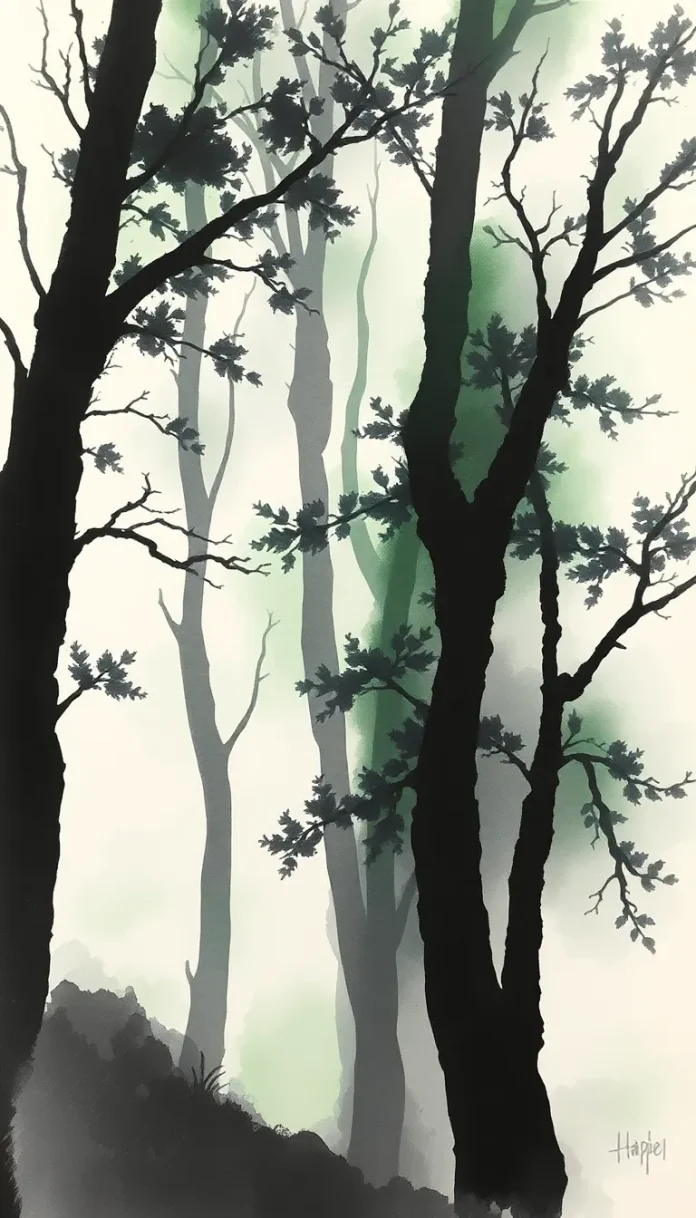The Ballad of Salt and Silence
A fiddler with no name but wind-borne sighs,
His coat a tapestry of tempests dyed,
His boots unsoled by leagues of orphaned roads.
The sea, a ravening hymn, gnawed the cliffs
Where he perched like a note left unresolved,
Curse-strings of brine matting his twilight beard.
Three strings survived the gnarl of his violin—
One moaned of mothers, one of unmourned graves,
The last a threnody for stars long drowned.
He played to the gales that stole his youth’s refrain,
Each bow-stroke a battle against the hush
That swelled in his chest, cold as kelp-choked depths.
Once, men say, his music charmed wheat to gold,
Made widows waltz with ghosts in moonlit fields,
Unspooled the strictured hearts of stone-built towns.
But now the instrument (its scrollwork cracked
Like maps of realms no king remembers)
Sang only to the fanged horizon’s jaw—
A duel betwixt despair and dying craft.
The gulls, those screeching minstrels of the void,
Mocked his cadence with their jagged psalms.
Still, he scraped the resin from his soul’s last vial,
Drew forth a melody so frayed and thin
It seemed the very air might snap its spine—
A tune that spoke of footsteps in the snow
Erased before the print could claim its shape.
Night reared its brindled mane. The lighthouse blinked,
One Cyclops leering through the sleet’s white scourge.
Somewhere beneath the maelstrom’s strident throat,
A schooner cracked its ribs on shale teeth—
Timbers screamed like children in the pyre,
Sailors’ prayers became the bubbles’ chant
As waves renamed their flesh as flotsam hymns.
The fiddler watched, his calloused fingers numb,
While the ocean spat out trinkets of the drowned—
A compass pointing nowhere but its grave,
A locket clutching strands of absent hair,
A captain’s log whose vowels bled to salt.
These relics, too, he wove into his song,
Till his violin grew damp with others’ ghosts.
Dawn came, a pallid beggar. Still he played,
Though frost had stitched his lashes shut with pearls.
The townsfolk, huddled by their peat-fed hearths,
Claimed the storm itself paused mid-devour
To parse that aching riddle of the strings—
How loss could hold such intricate cadence,
How silence wore a crown of harmonics.
Days writhed into weeks. The cliffs eroded
As his bow eroded—horsehair snapping
One by one, like friendships in reverse.
He ate what tidewrack dared approach his hand—
Mussels whispering in their blue-black tombs,
Seaweed that tasted of forgotten tongues—
And drank the rain straight from the snarling clouds.
The final string succumbed at autumn’s edge,
A twang that left the air itself bleeding.
No audience but the limpets’ mute vigil,
He cast the fiddle to the suckling foam,
Where it bobbed like a cradle emptied of purpose
Before the undertow’s black lullaby
Claimed it for the cathedral of the deep.
Yet as he turned—salt-crippled, melody-blind—
The horizon curdled into a shape
No mortal lexicon could cage with sound:
A wave taller than steeples, than mountains,
Throbbing with the bass-note of the earth’s core,
Its crest a chaos of anchors, mastheads,
Sternposts gnawed translucent by centuries.
It spoke not in water but in absences—
The space between heartbeats stretched into years,
The pause after the question none dare voice.
He spread his arms (a maestro facing choir)
As the deluge sculpted him into myth.
They found his coat next spring, pockets bloated
With sand that trickled through clenched fists like hours.
Some swear the gales still bear his vibrato—
A single strand of sound, neither joy nor woe,
That haunts the crags where shrieking meets the hush.
But the sea, forever famished, claims all
Songs born of solitude’s stark composition—
Feeds them to her eyeless things that dwell
Where light is but a rumor, hope a carcass,
And memory dissolves like sugar in tea.
There, in the un-chaptered dark, his refrain
Joins the chorus no soul lives to hear—
The requiem of the irrevocably lost,
Sung by currents to the deaf ears of time.


